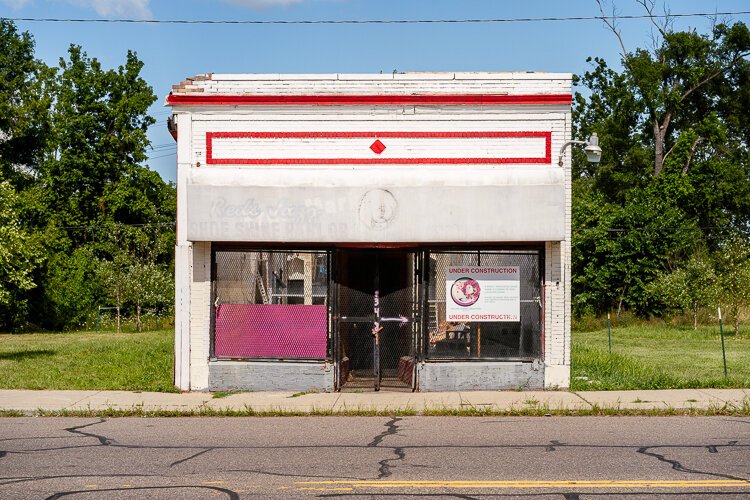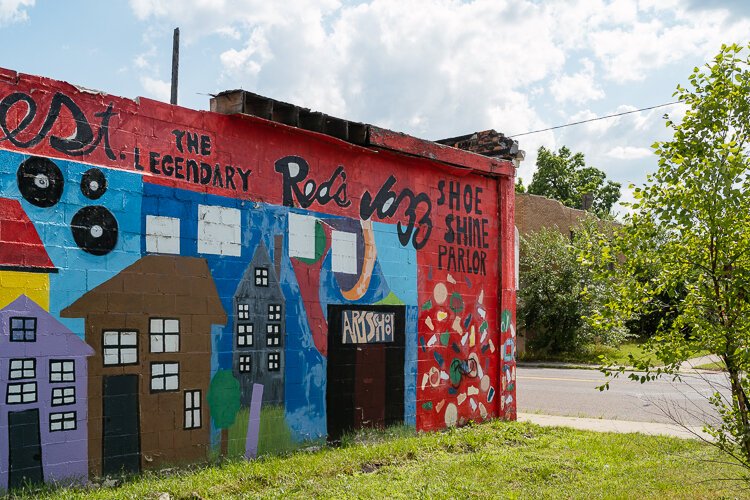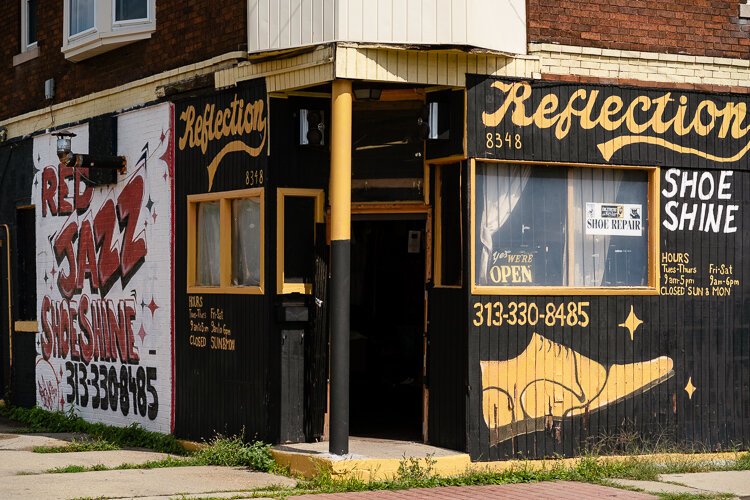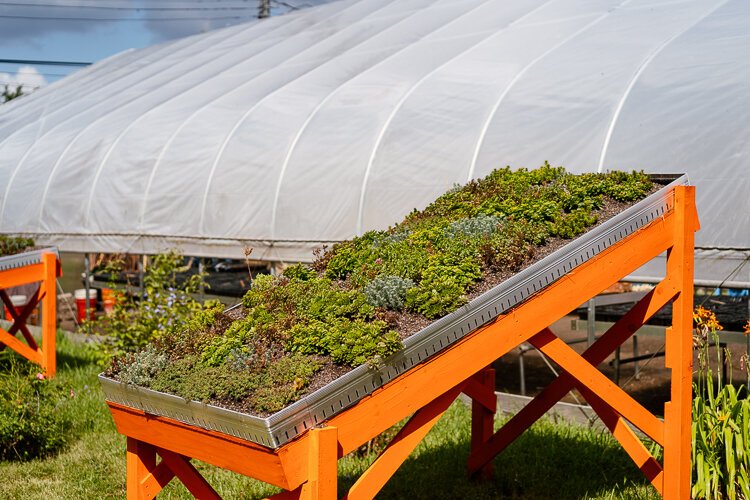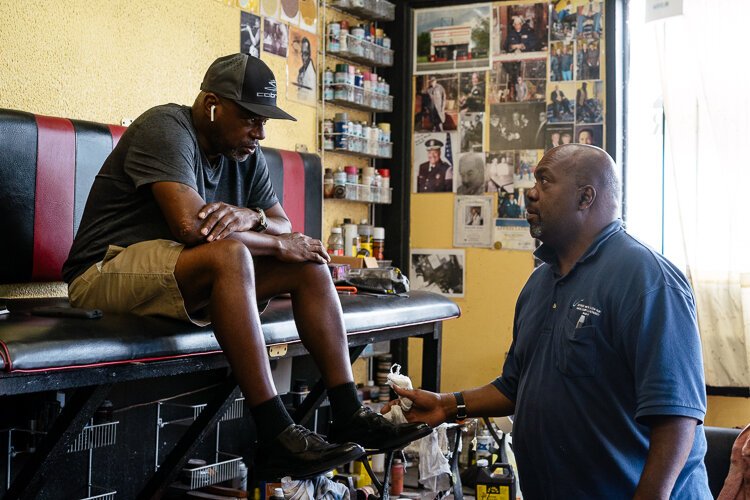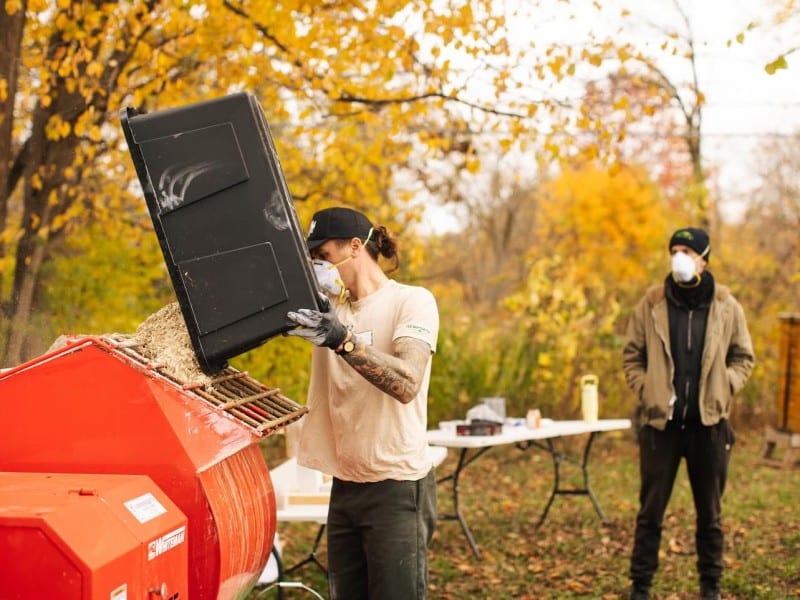Jazz revival: Bringing back Red’s Jazz Shoe Shine Parlor in North End
North End leaders are working to bring back a legendary spot that once played host to the likes of Aretha Franklin and Smokey Robinson and honor legacy of shoe shine owner.
It was 1978 – Andy Gibb, A Taste of Honey, and the Bee Gees were all hitting it big on the Billboard charts – when David Boggon started working at his uncle’s shop, Red’s Jazz Shoe Shine Parlor and Speak Easy, in Detroit’s North End.
He was just 15 years old, but kept shining shoes for Red for 12 years, always picking up a few hours at the parlor, even as he ventured out to other work experiences. Today, with Red gone, Boggon is working to reopen the legendary spot at 8148 Oakland Ave. with help from Oakland Avenue Urban Farm.
Boggon runs a shoe shine down the street called Reflections, but once Red’s opens back up, Boggon will close that shop and bring his services home: “I’m keeping my uncle’s history alive.”
Boggon says that Red’s real name was Willie D. Thomas, but he went by Red because of his complexion. Red passed away in 2006.
“My uncle was very generous and very kind, especially to the people in the neighborhood,” says Boggon. “And he employed them.”
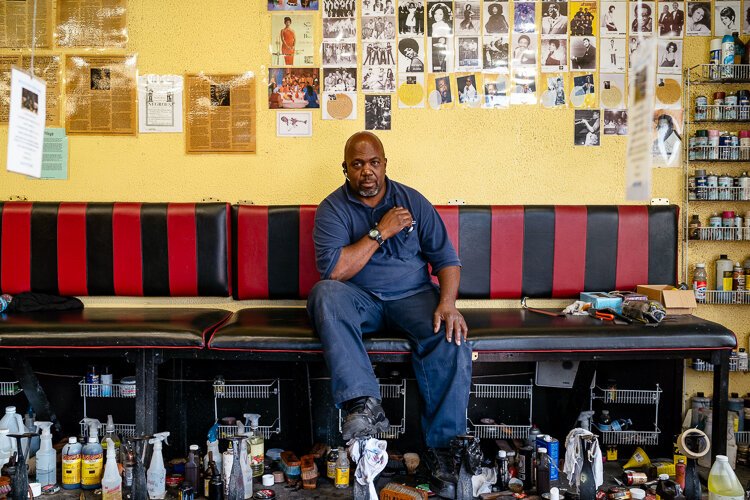
At one point, Red had 16 employees. He was known for training young men in the community on how to shine and repair shoes so that they would always have a skill to use to earn money.
It was also a gathering space.
“Red’s was also a place where we saw important people come,” says Jerry Hebron, executive director of Oakland Avenue Urban Farm who is working to revitalize the once-thriving commercial district along Oakland Avenue. The farm received grant funding last year to begin renovating Red’s old place on the avenue.
While Red moved shop a few times, he always remained on Oakland Avenue.
“He never moved off that street. He’s been on it since 1949,” Boggon says.
Beyond being loyal to his community, there may have been another reason he stayed on Oakland: So people could find him.
“Entertainers, people in politics, people from all over the world, when they came into the city, mostly men, they would find their way to Red’s Jazz Shoe Shine,” says Hebron. “I don’t know what kind of deals or partnerships or collaborations were made up in there, but something very positive was happening within those four walls.”
While it seems like a stretch for a nonprofit community farm to get involved in commercial development, Hebron doesn’t see it that way. She says that the farm has always been about improving the community and the quality of life for the people who live there. Bringing back businesses is part of that mix.
That’s why the farm and North End community members have been identifying what the community lacks, holding discussions about what type of businesses neighbors want today and collecting oral histories about what life was like when residents could get what they needed in the neighborhood without taking a bus or driving elsewhere.
The neighborhood also has a rich history of Jews and African Americans living and working together.
“As the Jewish people moved out of the neighborhood, they sold houses to African Americans making this one of the largest African-American community of homeowners,” says Hebron. “It has very deep roots and, as a child, I remember everything that we needed, we could go right up on Oakland and get it.”
In an effort to see that happen again, Oakland Avenue Urban Farm is working with a group of dedicated community stakeholders who meet every other week and members of the City of Detroit’s Planning and Development Department.
The Kresge Foundation gave the Northend Christian Community Development Association, of which Hebron is also executive director, an initial grant for $150,000 last year to restore Red’s old shop, intended to cover design costs, supplies for renovation, debris removal, some minor structural and cosmetic work, and the addition of a bathroom and plumbing. After that, Boggon will come in with his resources and design what he needs for the shoe shine.
Unfortunately, a major setback happened last year when the roof caved in. Although the space had been shuttered for four years, the roof’s condition was a surprise. The area was cordoned off as they decided what to do; supplies were destroyed as the space wintered without cover.
But the delay, Hebron says, allowed them to take another look at the plans. Plans for a flat roof have been replaced with plans for a green roof to capture storm water and provide water for the white birch alongside the building. The space will also use solar power.
The updated plan is to complete the roof first, and then proceed with building out the space. Remaining Kresge funds of $75,000 will help, along with funds from the Fred A. and Barbara M. Erb Family Foundation, but there are more dollars to be raised to get the space stabilized and open, says Hebron. Despite the major work to be done, she still sees a 2020 opening.
The community will then look for additional funding for the design of the speakeasy in the back of the building.
“There were a lot of speakeasies in the North End, I’m learning, but this particular speakeasy was one where Aretha Franklin, Smokey Robinson, The Temptations, and a lot of entertainers performed and rehearsed,” says Hebron. “It was one of those entertainment spots, the best kept secrets, where people could come and hear the music, meet up with friends, and it was in the back of the shoe shine.”
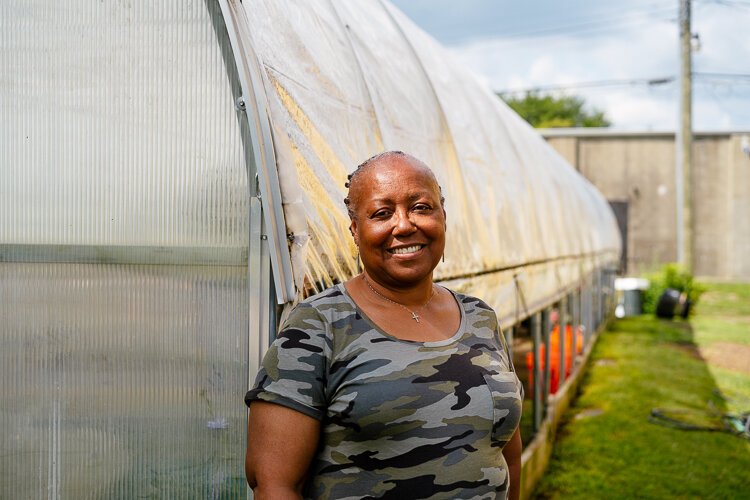
Hebron envisions the future speakeasy as a place folks can walk by foot to hear music and see other entertainment and feel comfortable doing that.
“There’s a lot of history here, and we are uplifting that history,” says Hebron. “That building, that business and its relationship is very important to our corridor.”
While Red’s may be missing a roof, it’s definitely got soul.
Looking for inspiration to support this project? Listen to the 1974 recording, Shoeshine Boy, by Eddie Kendricks (of The Temptations), supposedly inspired by his time at Red’s.
This article is part of a series where we revisit stories from our On the Ground installment and explore new ones in the North End. It is supported by the Kresge Foundation.
